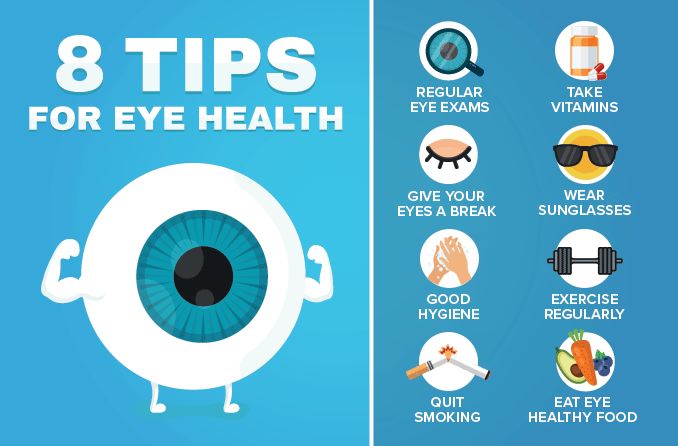Is Refractive Surgery Right for You? Elements to Think About for Better Eyecare
In the realm of eye treatment, the choice to undertake refractive surgical treatment is a crucial one that demands thoughtful consideration. As people seek quality and flexibility from the constraints of rehabilitative lenses, numerous variables enter play when figuring out the suitability of such a treatment. From the ins and outs of one's ocular wellness to the ins and outs of personal assumptions and everyday practices, each facet holds importance in the more comprehensive landscape of refractive surgery candidateship. By assessing these key aspects with treatment and precision, a clearer course towards notified decision-making arises.
Eye Health And Wellness Assessment
When thinking about refractive surgical procedure, a comprehensive eye health and wellness assessment is critical to evaluate the suitability of the treatment for every individual. eye center andalusia. This analysis entails a series of exams and tests carried out by an eye treatment expert to determine the total health and wellness of the eyes, the visibility of any kind of underlying problems, and the security of the refractive mistake
During the assessment, numerous variables are taken right into account, such as the client's case history, existing eye prescription, corneal density, student size, and tear film high quality. These analyses aid to determine any contraindications to refractive surgical treatment, such as corneal problems, cataracts, or unattended eye infections. Furthermore, the assessment aids to take care of person expectations regarding the potential results of the surgery based on their special eye qualities.
Ultimately, the eye health and wellness examination is essential in making sure the security and efficiency of refractive surgical procedure, as it offers important understandings right into the person's eye health status and helps establish the most appropriate therapy options for achieving ideal visual outcomes. (cardiologist andalusia)
Way Of Life Evaluation
A comprehensive lifestyle analysis is indispensable in identifying the suitability of refractive surgery for an individual's visual modification requirements. Way of living elements such as occupation, hobbies, and day-to-day activities play an important duty in the decision-making procedure concerning refractive surgery.
Moreover, way of life habits such as sports engagement, outdoor activities, or even skin care regimens can influence the healing process and overall success of refractive surgical procedure. By performing an extensive way of living evaluation, eye treatment professionals can customize their recommendations and treatment strategies to satisfy the one-of-a-kind needs of each patient, inevitably leading to enhanced aesthetic outcomes and fulfillment.
Assumption Positioning

Patients need to comprehend that while several individuals accomplish 20/20 vision or better following refractive surgery, some might still need glasses for particular tasks like reading or driving at night. Managing these assumptions assists avoid dissatisfaction and frustration post-surgery, leading to a more favorable general experience for the individual.
Threat Evaluation

Elements that company website may raise the danger of issues include age, particular clinical conditions like autoimmune illness, unsteady vision prescription, thin corneas, and impractical individual expectations. Furthermore, selecting a competent and experienced surgeon, complying with pre and post-operative treatment guidelines faithfully, and divulging any appropriate case history can help minimize dangers.
To minimize the probability of complications, ophthalmologists carry out comprehensive pre-operative analyses to recognize any type of contraindications to surgery. They likewise go over the possible risks and benefits with clients throughout the assessment procedure. By involving in open interaction and shared decision-making, both the patient and the ophthalmologist can interact to determine if refractive surgical treatment is the appropriate choice based on individual threat accounts and desired end results.
Assessment Relevance
Considering the crucial duty of educated decision-making in examining threats and potential issues in refractive surgery, the consultation procedure holds substantial significance in leading individuals in the direction of optimum results. During the appointment, the eye doctor reviews the individual's eye health and wellness, refractive errors, and general suitability for surgical procedure. This initial analysis is important in establishing one of the most appropriate treatment for every person, taking into consideration factors such as corneal thickness, pupil dimension, and existing eye conditions.
Moreover, the appointment works as a chance for people to review their assumptions, issues, and any type of inquiries they may have relating to the surgical treatment. Clear communication in between the surgeon and the patient is important to make certain reasonable expectations and an extensive understanding of the potential threats and advantages included.
Furthermore, the examination permits the surgeon to clarify the various surgical options offered, their corresponding results, and the post-operative care called for. This comprehensive conversation equips people to make educated choices regarding their eye treatment, resulting in better fulfillment and results post-surgery.
Final Thought
Finally, individuals considering refractive surgery needs to undergo a visit thorough eye wellness examination, assess their lifestyle habits, straighten their expectations with potential results, examine the connected threats, and focus on assessments with eye treatment experts. These elements play an essential role in determining the viability of refractive surgical treatment for every person, ensuring optimal outcomes and satisfaction with the procedure.
Patients considering refractive surgical treatment usually have high assumptions regarding the end results, expecting perfect vision without the demand for glasses or contact lenses. While refractive surgery can substantially boost vision and lower reliance on visual aids, it is critical for clients to recognize that outcomes may vary based on individual aspects such as the level of refractive mistake, corneal thickness, and general eye health and wellness.
By engaging in open interaction and shared decision-making, both the ophthalmologist and the client can work together to establish if refractive surgery is the appropriate option based on individual threat accounts and wanted end results.
Taking into consideration the crucial role of educated decision-making in examining dangers and prospective problems in refractive surgery, the appointment process holds considerable significance in guiding people towards optimal end results. Throughout the assessment, the eye doctor reviews the client's eye health and wellness, refractive errors, and total viability for surgery.